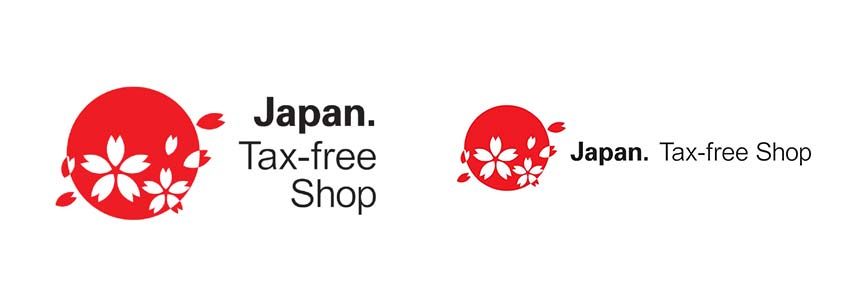Customs
Japanese hospitality is proverbial, and this is especially true for the tourists who visit the different areas of the country by the millions every year. To make sure our trip is as pleasant as possible, however, it is also necessary to remember how law-abiding they are. Below, we offer some tips on how to behave at customs, the only instance where you will (hopefully) have to deal with the strict Japanese police.
For us Europeans accustomed to Schengen, Asian countries, with their stringent rules for entry, even if only for tourism, can be quite difficult for the less experienced traveller. Japan is certainly no exception, indeed, given the proverbial Japanese organisation, and the fact that many people regularly try to circumvent the rules to enter the country illegally, without due care your experience with customs could be a bad start to an otherwise perfect trip. Compared to many other countries, there is the advantage of receiving your visa already on arrival, totally free of charge, when it will be applied to your passport directly at the checkpoint with a relatively easy bureaucracy to deal with (no third degrees as in many American airports, for example). For those who have had to go through the sometimes embarrassing scenes at Chinese airports, Japan will certainly be a piece of cake. Remember, however, that the visa will always be single-entry, so if you plan to take a trip to neighbouring countries, you will then have to go ahead and get a second one.

京市, CC BY-SA 3.0, via Wikimedia Commons
Two things are of paramount importance, however, when you enter Japan: first, having a clear travel plan, at least for most of your stay will make everything easier. They are unlikely to make a fuss if there is a small gap in your organisation, perhaps because you are still not sure if you really want to go and see this or that temple, but telling a Japanese official ‘I’m here for the moment, we’ll see later’ is simply inconceivable to a Japanese policeman. Even if you are a westerner, and therefore looked on favourably compared to many other types of travellers, it is better to produce as detailed a record of your movements as possible, complete with your return ticket and proof that you have enough cash to support yourself (credit cards are not taken into account, given the ever-changing economic relations between banks), and perhaps a complete list of the places where you will be staying overnight, so that the customs officer has no reason to suspect your good faith. Secondly, should there be any problems of any kind, it is essential to always be the image of politeness. It is well known how much the Japanese value this quality, and the slightest hint of impatience or extravagance, however super justified, has a good chance of costing you your visa. There is no way the Japanese can compromise on certain things. Being well dressed and groomed, and maintaining a certain style and composure, at least at customs and especially if for some reason you are ‘invited’ for a more thorough check on your luggage, can work wonders (above all, remember to cover up any tattoos). Remember also, to be on the safe side, to always indicate ‘tourism’ as the reason for the trip, and try to stay for less than the three months allowed by the visa. In fact, many Asian citizens, but sometimes also Europeans, take advantage of tourist visas to commute between Korea, China and Japan, renewing their tourist visas from time to time and staying illegally even for long periods. Although the punishments are harsh, for offenders, the high salaries and benefits are very tempting, especially for those from very poor countries.
What can I bring
As for your luggage, a verbal declaration of what you are carrying is usually sufficient, unless the guards have serious reasons to think that you are carrying illegal goods. In that case, rest assured that they will have no qualms about checking every nook and cranny of your suitcase, regardless of any damage they may cause to your belongings (of course, you will be entitled to compensation if they make a mistake).
You may take the following with you within the limits indicated
1) 500 g of tobacco, 400 cigarettes or 100 cigars
2) 3 bottles of alcohol of 760 millilitres each
3) 30 centilitres of perfume
4) gifts and souvenirs in addition to those already mentioned with a commercial value not exceeding 200,000 Yen
5) 120ml of liquid with nicotine for electronic cigarettes and 1 electronic cigarette
If you exceed these quantities, you will need a written declaration, but unless the quantity of goods is particularly above the limits, it can happen that the Japanese are flexible.
For foodstuffs, plants and animals there are restrictions. Fresh food and plants cannot be brought in.
For products such as pulses and dried flowers, cereals, meat, dairy products, eggs and honey, a phytosanitary certificate or a certificate of inspection is required.
For medicines there are no major restrictions (of course they must be for personal use). However, I recommend that for essential medicines, you get a declaration in English from your doctor.
You will find a list of all prohibited and permitted products in the links at the bottom of the page.
However, if you intend to bring the equivalent of one million Yen or more in cash into the country (about 7600 euro, at the current exchange rate), these should be declared without delay. There are special controls on the flow of money to and from Japan, again because of the legal shortcuts sought by those seeking work in the country for short periods.
In some shops you can take advantage of the Japan Tax-free service (you will find the logo outside the shop). By presenting your passport you will be entitled to NOT pay VAT on the products you buy (VAT is 10% on all goods that you ‘export’ to your country, if you spend at least 5000 Yen in each shop). Purchase receipts will be attached to your passport and must be returned at the airport (there is usually a special container in front of passport control). Goods purchased tax-free should be placed in your hand luggage in its packaging for possible checking (the conditional is a must, as there are virtually no checks). Be careful, however, as alcohol and cigarettes can only be purchased under this system in the duty-free shops at the airport.

Useful links
Author
Michele Anoardi
